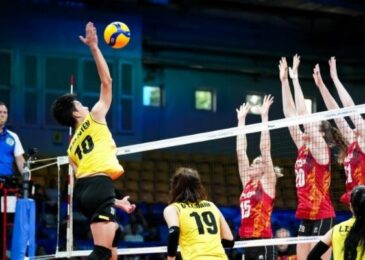Game-day performance anxiety is a common challenge for athletes of all ages. It’s crucial to address this issue before game day arrives. Unfortunately, many coaches neglect this aspect until the last minute, relying solely on pep talks to calm their players’ nerves. However, with a few adjustments in coaching throughout the season, you can help your team become mentally prepared for game day, just as they are physically prepared.
In this article, we will explore various strategies to reduce anxiety and support your team’s psychological well-being. These insights are provided by Kevin Chapman, PhD, a clinical psychologist and founder of The Kentucky Center for Anxiety and Related Disorders, who specializes in sports-based anxiety.
Bạn đang xem: Reducing Anxiety to Enhance Performance on Game Day
Set Expectations for Competition that are Process-Oriented
One effective approach, according to Chapman, is setting process-oriented goals for your athletes. These goals give them tangible things to focus on during the game, things that they can control. When athletes feel in control, they experience a sense of calmness.
Chapman explains that focusing on processes, such as positive self-talk, game day tactics, mechanics, visualization, and learning mentality, will lead to successful outcomes. Athletes who prioritize these aspects, driven by their love for the game, always achieve positive results, regardless of their performance level.
Watch Your Language Around Competition
Parents and coaches often unintentionally contribute to their athletes’ anxiety by using competitive language. Statements like “This is the big game” or “This play could make or break the season” add unnecessary pressure and distress. Instead, it’s important to emphasize improvement rather than just the final score.
Avoiding phrases that overly emphasize winning and focusing on the growth and development of your athletes will help relieve anxiety and create a healthier competitive environment.
Help Your Athletes Create Rituals
Encouraging athletes to develop their own pre-game rituals can significantly reduce anxiety and enhance focus. Many professional athletes have their own unique routines, mantras, or lucky charms that help them enter the ideal mindset for game day. Similarly, young athletes should be given the opportunity to find their own secret routine.
Xem thêm : Boys Youth Team Punches Ticket to NORCECA Finals in Cuba
Coaches can guide their athletes in developing rituals that work best for them. This may involve writing a personal mantra, practicing visualization techniques, or finding items that bring a sense of comfort and confidence. By following these rituals consistently, athletes can enter the game feeling focused and ready to perform their best.
Make Practice Like Game Day
To diminish the disparity between practice performances and game-day performances due to anxiety, it’s essential to simulate game-day experiences during practice sessions. This approach allows athletes to become familiar with the pressure and challenges they will face on game day, making the actual competition feel more like just another practice.
Coaches can create realistic scenarios by incorporating timed or scored competitions into certain practices. This helps athletes adjust to the pre-game routines, waiting time, and other elements associated with official matches. Wearing uniforms, setting start and finish lines, and providing the usual food and drinks on the sidelines further contribute to enhancing the practice-to-game transition.
These strategies will not only prepare athletes mentally but also equip them with the tools to manage anxiety effectively and perform at their best on game day.
FAQs
Q: How can I help my athletes overcome game-day anxiety?
A: Setting process-oriented goals, using positive language, encouraging the development of pre-game rituals, and simulating game-day experiences during practice can help athletes manage their anxiety and perform better on game day.
Q: What are some examples of process-oriented goals?
Xem thêm : Looking Ahead: 2025 Girls 18s Championship Coming to Salt Lake City
A: Process-oriented goals are focused on controllable aspects of performance, such as positive self-talk, game day tactics, mechanics, visualization, and learning mentality. By prioritizing these aspects, athletes can achieve success regardless of the final outcome.
Q: How can I create a practice environment that resembles game day?
A: To make practice more like game day, incorporate timed or scored competitions, encourage athletes to follow their pre-game rituals, wear uniforms, and create a supportive game-day atmosphere. By replicating the conditions and pressures of official matches, athletes can better adapt and perform under similar circumstances.
Summary
Reducing performance anxiety on game day is crucial for athletes to reach their full potential. By implementing the strategies discussed in this article, coaches can create a supportive and mentally prepared team. Setting process-oriented goals, using positive language, helping athletes develop pre-game rituals, and simulating game-day experiences during practice sessions are all effective ways to minimize anxiety and enhance performance.
Remember, a calm and focused mindset can greatly impact an athlete’s performance. So, prioritize mental preparedness alongside physical training, and watch your team excel on game day.
To read more about sports psychology and other related topics, visit our website. Join us in fostering a positive youth sports culture that promotes sportsmanship, character-building, and clean, healthy performance.
(Website link with a call to action)
Nguồn: https://alpinetgheep.com
Danh mục: Volleyball


